Please take a look at the following code:
class A {
let a: String
let b: String
init(a: String, b: String) {
self.a = a
self.b = b
}
}
class B: A {
let c: Bool
private let aExpectedValue = "a"
private let bExpectedValue = "b"
override init(a: String, b: String) {
c = (a == aExpectedValue && b == bExpectedValue)
super.init(a: a, b: b)
}
}
This causes an error in B.init:
However, if I change it either to c = (a == aExpectedValue) or c = (b == bExpectedValue) then it compiles correctly.
Does anybody know why is that?
